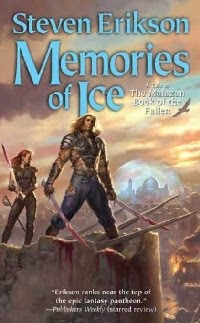
My friend
Meaflux mentioned a strange concept called polyphasic sleep that would supposedly allow me to spend less time sleeping, thus maximizing my waking time. I usually love sleep, I can sleep half a day if you let me and I am very cranky when forcefully waken up... as in every day when going to work, doh! Also, I enjoy dreaming and even nightmares. Sure, I get scared and lose rest and there are probably underlying reasons for the horrors I experience at night sometimes, but they are cool! Better than any Hollywood horror, that's for sure. My brain's got budget :)
Anyway, as I get older I understand more and more the value of time, so a method that would give me an extra of 2 to 6 hours a day sounds magical and makes me reminisce of the good times of my childhood when I had time for anything! Just that instead of skipping school I would skip sleep. But does it work?
A quick Google shows some very favourable articles, including one called
How to Hack your Brain and
the one on Wikipedia, which is ridiculously short and undocumented. A further search reveals some strong criticism as well, such as this very long and seemingly documented article called
Polyphasic Sleep: Facts and Myths. Then again, there are people that criticise the critic like in
An attack on polyphasic sleep. Perhaps the most interesting information comes from blog comments from people who have tried it and either failed miserably or are extremely happy with it. Some warn about the importance of the sleep cycles that the polyphasic sleep skips over, like this
Stage 4 Sleep Deprivation article.
Given the strongly conflicting evidence, my only option is to try it out, see what I get. At least if I suddenly stop writing the blog you know you should not try it and lives will be saved :) Ok, so let's summarise what this all is about, just in case you ignored all the links above.
Most people are monophasic sleepers, a fancy name for people who sleep once a day for about 8 hours (more or less, depending on how draconic your work schedule and responsibilities are). Many are biphasic, that means they sleep a little during the afternoon. This apparently is highly appreciated by "creative people", which I think means people that are self employed and doing well, so they can afford the nap. I know many retired people have a biphasic sleep cycle at least and probably children. Research shows that people normally feel they need to sleep most at around 2:00 and 14:00, which accounts for the sleepiness we feel after lunch. The mid day sleep is also called
Siesta.
Now, poliphasic sleep means you reduce your sleep (which in the fancy terminology is called core sleep) and then compensate by having short sleep bursts of around 20 minutes of sleep at as fixed intervals as possible called naps. This supposedly "fixes" your brain with REM sleep, which is the first in the
sleep lifecycle, however it is a contested theory. The only sure thing seems to come from an italian researcher called
Claudio Stampi who did a lot of actual research and who clearly stated that sleeping many short naps is better than sleeping only once
at the same number of hours of sleep. So in other words six 20 minutes naps are better than one 3 hour sleep.
Personally, I believe there is some truth to the method, as many people are actually using it, but with some caveats. Extreme versions like the Uberman (six naps a day, resulting in 2 hours of actual sleep) probably take their toll physiologically, even if they might work for the mental fitness. Also, probably some people are better suited than others for this type of customised sleep cycles. And, of course, it is difficult for a working man to actually find the place and time to nap during the afternoon, although I hear that it has become a fashion of sorts in some major world cities to go to
Power nap places and sleep for 20 minutes in special chairs. No wonder New Yorkers are neurotic :) On a more serious yet paranoid note: what if this works and then employers make it mandatory? :-SS
So, in the interest of science, I will attempt this for a while, see if it works. My plan is to sleep
5 hours for the core, preferably from 1:00 to 6:00,
then have two naps, one when I get back from work (haven't decided if before or after dinner, as there are people recommending not napping an hour after eating) and another close to 8:30 when I go to work. So far I have been doing it for three days, but it seems all this needs at least a few weeks of adjustment.
Now, with 5 hours and 40 minutes of sleep instead of 7 I only gain 1.33 hours a day, but that means an extra TV show, programming a small utility, reading a lot and maybe even writing... so wish me luck!
Update: I did try it, but I didn't get the support I needed from the wife, so I had to give it up.
My experience was that, if you find the way to fall asleep in about 5 minutes, the method works. I didn't feel sleepy, quite the contrary, I felt energized, although that may be from the feeling of accomplishment that the thing actually works :) Besides, I only employed the method during the work week and slept as much as I needed in the weekend. I actually saved about 40 hours a month, which I could use for anything I wanted. If one works during that time, it means an increase in revenue to up to 25%. That's pretty neat.
 Reaper's Gale, the seventh book in Steven Erikson's series called The Malazan Book of the Fallen made me feel all kinds of things. There was boredom a lot of times, there was uncomprehension in others, there were moments when tears flowed from my eyes as well as great moments of tension. At the end of it, I feel unqualified to actually discuss it. It is still a great book, it ends with a convergence of paths, as all the others have, but it somehow felt different from the previous six books.
Reaper's Gale, the seventh book in Steven Erikson's series called The Malazan Book of the Fallen made me feel all kinds of things. There was boredom a lot of times, there was uncomprehension in others, there were moments when tears flowed from my eyes as well as great moments of tension. At the end of it, I feel unqualified to actually discuss it. It is still a great book, it ends with a convergence of paths, as all the others have, but it somehow felt different from the previous six books.







